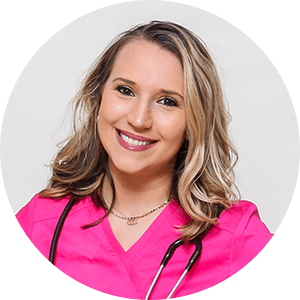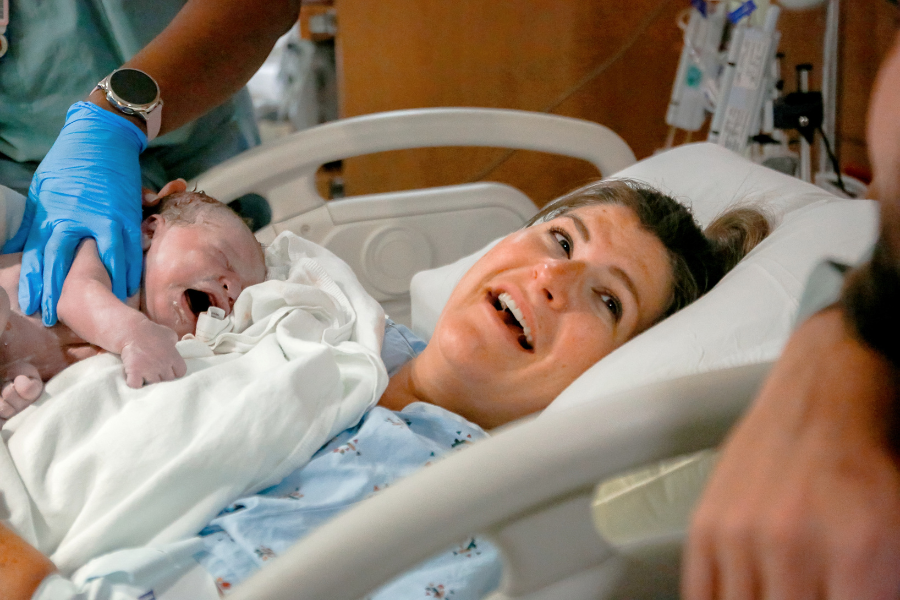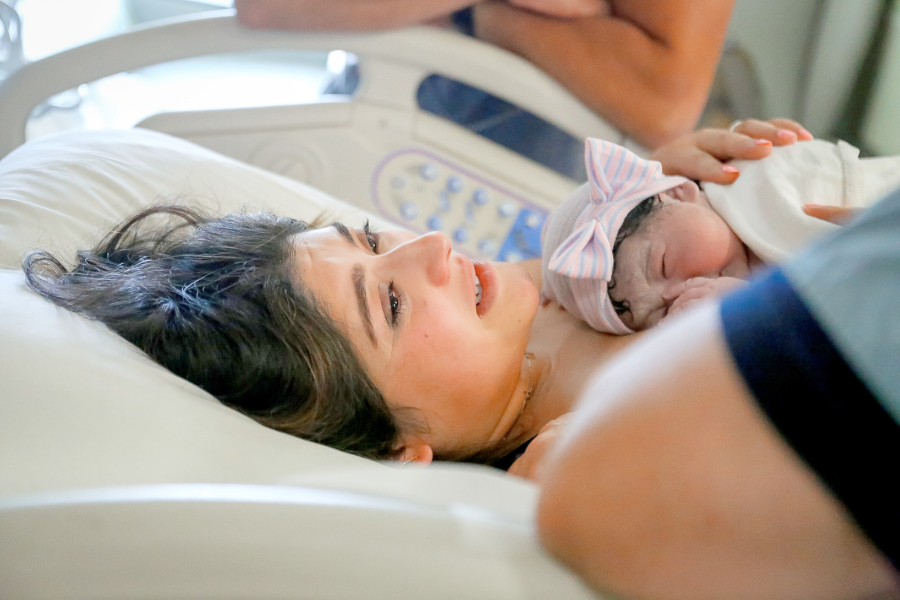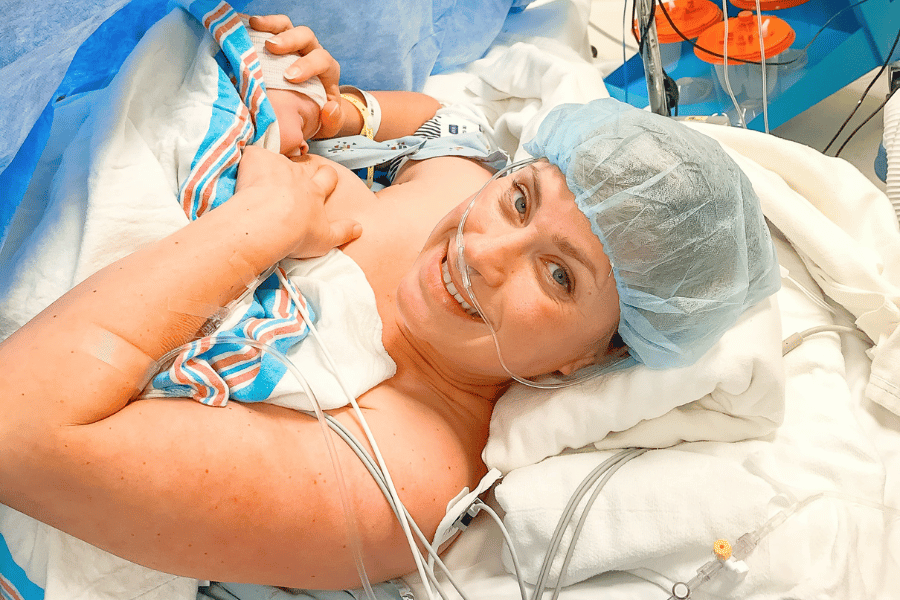You might have to sacrifice some things during pregnancy but good skin care products are not one of those luxuries you have to forgo!
I know a lot of mamas get that natural pregnancy glow in pregnancy but it may or may not last the entire 9 months. I’m breaking down the best skin care products for pregnancy for you today.
Pregnancy-safe skincare products have quickly become a common topic I see in my DMs. Since so many of you have questions and have expressed interest in this topic I thought I would put together an article about it.
So without wasting another second, let’s get going!
Follow @mommy.labornurse on Instagram to join our community of over 650k for education, tips, and solidarity on all things pregnancy, birth, and postpartum!
Skin changes in pregnancy
You have hormones to thank for a lot of the changes that happen to your body during pregnancy, including changes with your skin. I’m sure you are familiar with stretch marks during pregnancy but those aren’t the only kind of skin changes that happen.
Stretch marks
Let’s start with stretch marks. Stretch marks are simply caused by skin stretching, something that we know happens during pregnancy. What’s more, there is also a genetic component. So, if your mama had them during her pregnancy (or pregnancies), there’s a good chance you will also get them.
With stretch marks, it’s all about prevention. You want to prevent them from happening rather than try and tackle them after they show up. If you are interested in learning more about stretch marks, prevention, and my favorite stretch mark creams, you can do so in my post below.
Glow
I touched on the pregnancy glow earlier but want to revisit it. What actually causes that glow that so many women get during pregnancy?
Your blood volume increases by nearly 50% during pregnancy. This increase is to ensure your growing baby is getting enough oxygen and nutrients via your placenta.
This increase in blood circulation is part of the reason why some women have noticeably brighter skin during pregnancy.
Acne
Shifting gears to pretty much the opposite of pregnancy glow – acne! Acne, pimples, and breakouts are another, all too common skin change that can happen during pregnancy.
The increase in hormone production that happens during pregnancy can cause your oil glands to be on overdrive. Increased oil production too often leads to increased acne.
Melasma
Melasma, the mask of pregnancy, appears as dark patches or spots on the face. These spots, which resemble sun spots, are caused by pregnancy hormones and are most commonly found on the cheeks, nose, and forehead.
One of the best ways to prevent it is to stay out of the direct sunlight. If you must be in the sunlight, make sure to wear sunscreen and a hat to cover your face and neck. I have put a whole article together about melasma, I will link it below if you are interested in learning more!
Related Reading: What is The Mask of Pregnancy?
The list above isn’t limited to all types of skin changes that might take place during pregnancy but rather a quick run through of some of the more common ones.
Skincare products to avoid in pregnancy
It’s not only important to pay attention to what you are putting in your body during pregnancy, it’s also important to keep an eye on what you are putting on your body as well.
Some ingredients in skin care products get absorbed into your bloodstream through your skin and in turn can reach your developing little one.
Here are the more common skincare products to avoid during pregnancy.
Retinoids
Retinoids, which are a derivative of vitamin A, play an important role in both immunity and skin health. Some of their benefits include decreasing appearance of wrinkles, reducing inflammation, and unclogging pores, among others.
The studies done on the correlation between retinoid use during pregnancy and birth defects is pretty limited but there is enough evidence to suggest something exists there. You will have a hard time finding women to subject their growing baby to potential harm so the studies are far and few between.
According to the NIH however, “there are 4 published case reports of birth defects in the literature associated with topical tretinoin use” (source.) Tretinoin, also known as Retin-A, is a prescription cream that contains much higher doses of retinoid.
Salicylic acid
Salicylic acid can be used to treat acne. It has anti-inflammatory properties to help reduce redness and swelling. Studies show that when used in small amounts on healthy, undamaged skin, absorption is likely undetectable. According to the NIH, “No studies have been conducted in pregnancy on topical use; however, as such a relatively small proportion is absorbed through the skin, it is unlikely to pose any risk to a developing baby” (source.)
Products that contain high doses of salicylic acid, such as oral medications and peels, should be avoided during pregnancy. If you are conflicted or confused it’s always a good idea to consult your OB provider before starting or continuing any products you are unsure about.
Hydroquinone
Hydroquinone is a skin-lightening agent that can help reduce skin pigmentation that occurs with certain conditions. One of those conditions, melasma, which was previously discussed, is fairly common during pregnancy.
While there is no proven link between hydroquinone use and severe congenital defects, the sample size used in the single study was small, so the data is pretty limited. It is believed that up to 45% of topical hydroquinone is systemically absorbed through the skin (source) and for this reason, it is recommended to avoid its use during pregnancy.
Phthalates
Phthalates are found in hundreds of products, not just skincare and beauty items. They are a group of chemicals used to make plastics more durable. You can come into contact with phthalates by eating and drinking foods that have been in contact with products containing phthalates.
These chemicals are found in many beauty and personal products as well. According to ACOG, “Personal care products may contain phthalates, linked to neurodevelopmental conditions and to male reproductive problems. Recommended strategies include using fragrance-free rather than scented or unscented products (source.)
Those are a few of the big ones. If you have any doubt or are ever unsure about a product, skincare related or not, I encourage you to speak with your OB provider about it first!
Skincare products that are safe during pregnancy
We’ve talked about what you should avoid during pregnancy, when it comes to skincare products, now let’s talk about what’s safe to use. Here are some ingredients to look for when searching for the best skincare products for pregnancy.
Benzoyl peroxide
Used to treat mild to moderate acne, benzoyl peroxide works by reducing the amount of acne-causing bacteria. It also helps the skin to dry and peel, another way in which it fights acne.
While there is some debate about its use during pregnancy, many experts, including The American Academy of Dermatology Association (AAD) and The American College of Obstetricians and Gynecologists (ACOG) conclude that it is safe in limited amounts.
Vitamin C serum
Vitamin C is an antioxidant most commonly found in citrus fruits and green leafy vegetables. Some of the potential benefits of using Vitamin C include wrinkle reduction, protection again sun damage (this doesn’t mean you can skip sunscreen), dark spot reduction, and a boost in collagen. In addition, vitamin C can help wounds and scars to heal faster.
Glycolic acid
Glycolic acid can be used to treat acne, dark skin patches, and age spots. It works by removing the top layers of dead skin cells and might help reverse sun damage to the skin.
Currently, there are not any studies about the topical use of glycolic acid during pregnancy. Due to the lack of studies, the U.S. FDA has not placed glycolic acid in any specific category but it is considered safe to use due to its minimal absorption (source.)
Azelaic acid
Azelaic acid can help unclog pores as well as kills acne-causing bacteria. According to the AAD, azelaic acid is considered safe to use during pregnancy. Systemic studies on the use of azelaic acid on humans during pregnancy are lacking.
Studies done on animals, however, did not result in any harmful effects on either the fetus or newborn, even when administered in high doses during pregnancy.
Gentle and mild cleansers
Pregnancy can make your skin more sensitive. You might not be able to tolerate a particular facial cleanser you had been using prior to pregnancy for this reason. You should be safe with a gentle, mild cleanser such as CeraVe or Cetaphil.
Pregnancy-safe sunscreens
Since summertime is quickly approaching I figured it would be a good idea to dedicate a whole section to pregnancy-safe sunscreens! Below are my top 5 sunscreen recommendations for pregnancy.
1. SuperGoop! Unseen Sunscreen
With an oil-free formula, it’s antioxidant-rich and helps filter blue light, UVA, UVB, and IRA rays. Made with powerful yet clean ingredients, this sunscreen is weightless, scentless, and made for all skin types and tones.
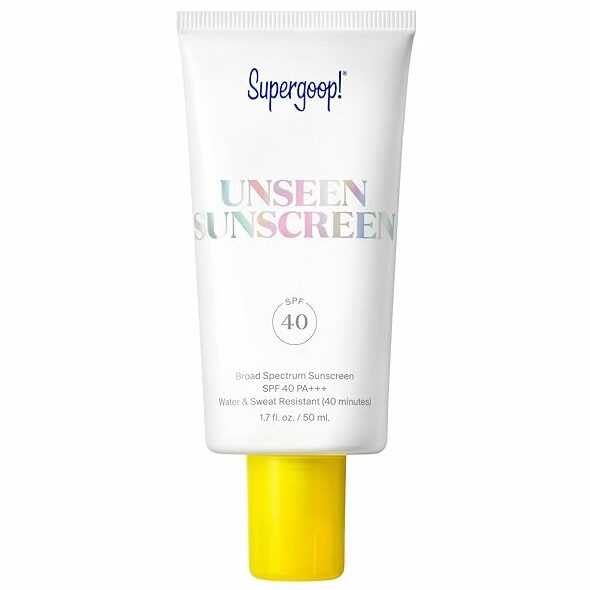
2. EltaMD UV Clear Face Sunscreen
An oil-free sunscreen made with zinc oxide. It’s lightweight, silky, and helps calm and protect sensitive skin types. It helps protect against breakouts and is a great option for those with acne prone skin care concerns.
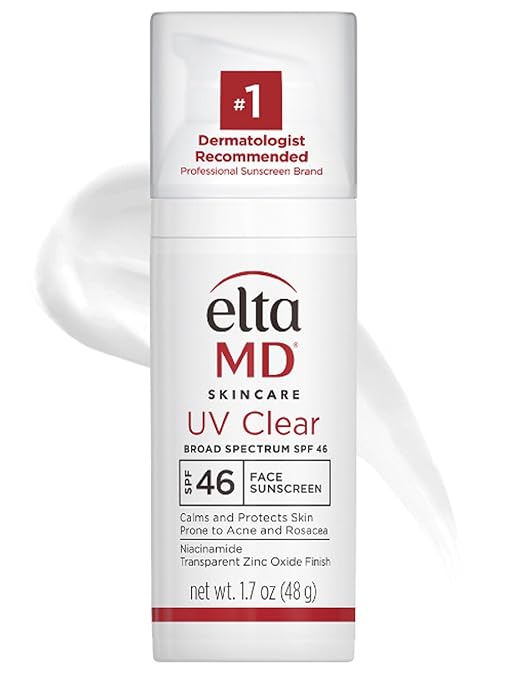
3. CeraVe Hydrating Mineral Sunscreen
This sunscreen has a universal tint that is suitable for most skin tones. It has a lightweight, non-greasy feel that is suitable for all skin types. Formulated with three essential ceramides, this sunscreen helps to restore and maintain the skin’s natural barrier.
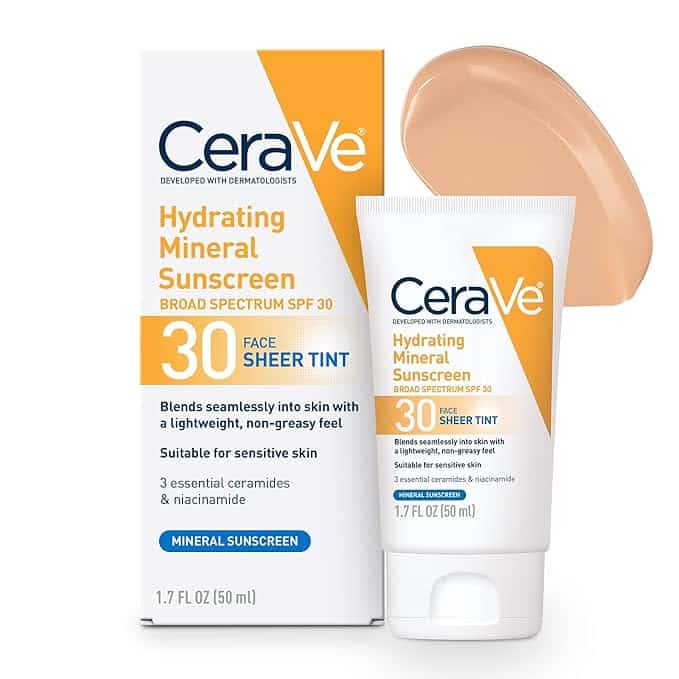
4. Badger Mineral Sunscreen
Composed of 98% organic ingredients this sunscreen is natural, reef safe, and effective. Made with only 5 simple ingredients, it not only protects your skin from UVA and UVB rays but also moisturizes, nourishes, and protects your skin. This sunscreen is made with 100% solar power by a woman-owned family business.

5. Sun Bum Original Sunscreen
This sunscreen delivers UVA and UVB protection and is packed with Vitamin E. It is Oxybenzone, Octinoxate, Gluten, Cruelty and Paraben Free. It also offers the convenience of a spray!
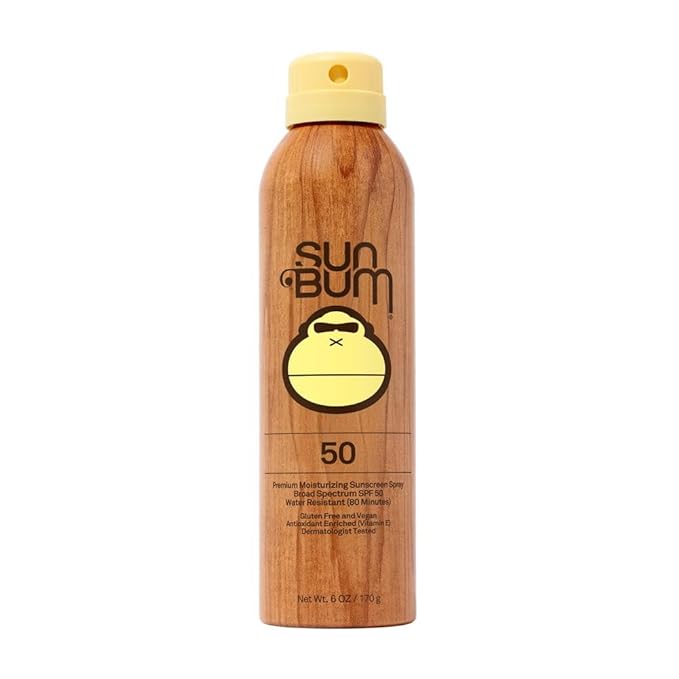
Wrapping up
I hope you found this article to be helpful as you navigate what is and is not safe to use during pregnancy. Like I said earlier, it’s just as important to be mindful of what is going on your body as it is what is going in your body during pregnancy. For more MLN pregnancy and birth related content and resources be sure to visit the links below!

